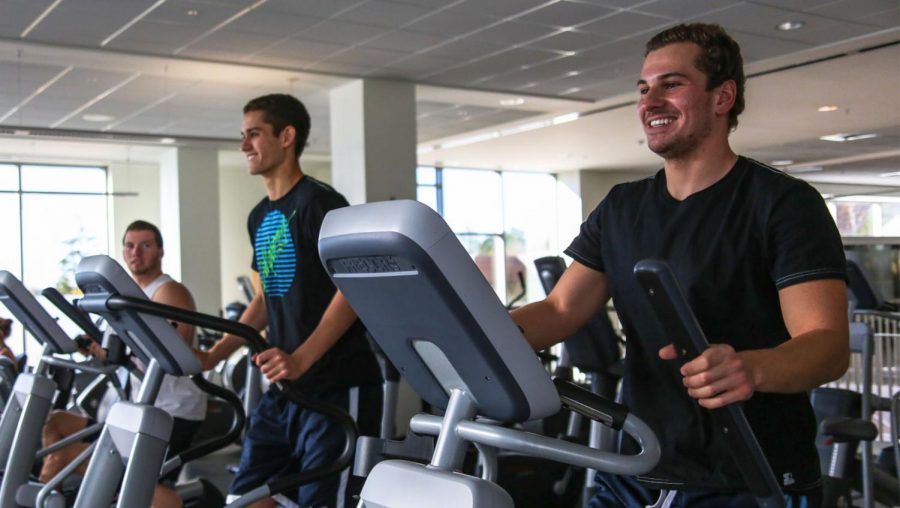Viewpoint: Why exercise is a needed priority in a student’s life
November 7, 2018
Should students be hitting the gym instead of hitting the books? Researchers say, to a certain extent, yes.
The brain, like any other muscle in the human body, needs to be worked in order to stay strong. One way to work the brain is actually to work out the whole body.
We all know that exercising is good for the heart and for helping achieve that bikini-ready look for summer. However, some people might not realize how much exercise can help your academic skills.
According to a study done by the University of British Columbia, “Regular aerobic exercise, the kind that gets your heart and your sweat glands pumping, appears to boost the size of the hippocampus, the brain area involved in verbal memory and learning.” Resistance training, like lifting weights, does not produce as well of results as cardio.
This means that exercising helps the brain store information, focus and improve productivity levels.
Not only can exercise improve memory, but it can also help relieve stress. Getting the blood pumping throughout the body can reduce the amount of cortisol in the body, which is released when stress is felt.
According to Melanie Healy, a professor at the University of Wisconsin-La Crosse, cortisol leads to cravings for more caloric foods and not feeling satisfied with normal amounts of food. Simply, cortisol can make a person gain weight.
However, studies have shown that simply walking for 20 minutes highly reduced the level of stress people participating in the studies felt, and therefore, their cortisol levels stayed within a normal range.
When stress isn’t a major factor in a life, it is shown to be easier to study, retain information, sleep and live a happier life. All of this could happen with a minimum of 30 minutes of exercise three times a week.
Now, being in college, the amount of time available to exercise may be close to none. The good news is going to the gym for a full workout session is not always necessary.
Healy reported that the brain usually falls asleep every 12 minutes of doing the same thing. This leads to students often zoning out and not getting the most of their study sessions. Healy recommended that after every 15 minutes of studying, the student should take a break and do some sort of physical exercise for as short as five minutes. This can be running up and down some stairs, completing some jumping squats or doing anything else that raises the heart rate. After this short break, the student will feel much more capable of remembering information, according to Healy.
Although exercise alone does not have the capability to produce an excellent paper, it can lead to better memory, less stress, more sleep and a happier mood.
Students at UWL are provided with a gym, so exercising now may be easier than ever before. So, the next time studying seems like a task that cannot possibly be done any longer, hit the gym. It might just help raise grades and improve the overall quality of life.






